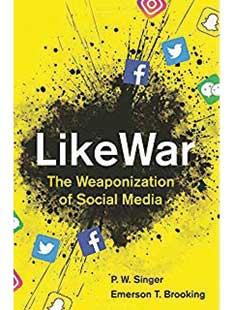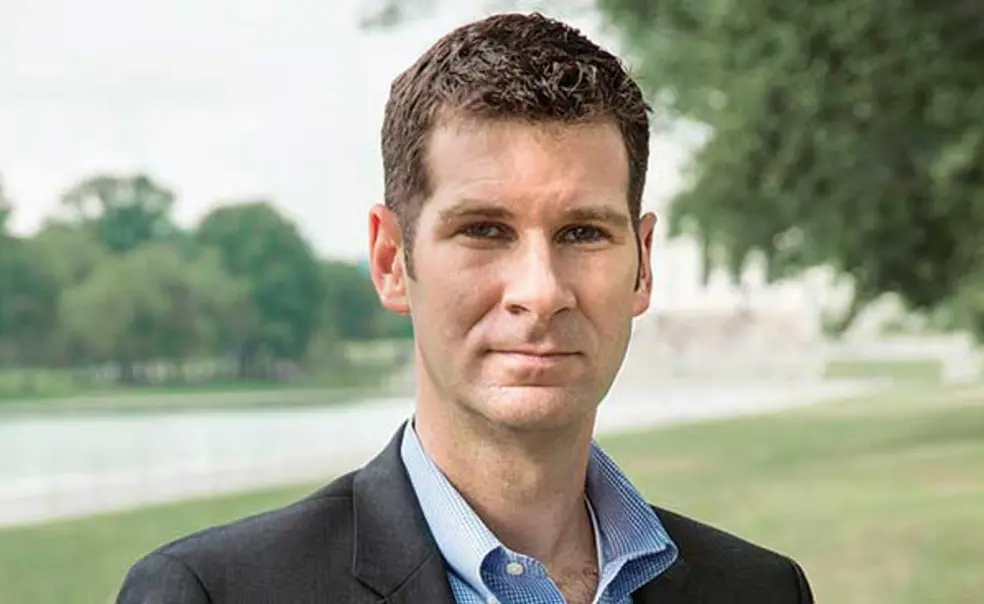
To P.W. Singer ’97, delving into the web’s seediest corners highlights a new type of enemy waging war for our attention.
In their new book LikeWar: The Weaponization of Social Media (Houghton Mifflin Harcourt), Singer and co-author Emerson Brooking use the history of cyberwarfare and strategic analysis of recent attacks to reveal how ISIS, Russian trolls, and European fake-news mongers have perpetuated disinformation campaigns that seek to change how we see the world. We are all part of this new onslaught: “If you are online, your attention is like a piece of contested territory, being fought over in conflicts that you may or may not realize are unfolding around you,” he writes.
Singer is a strategist and senior fellow at the New America Foundation. He has consulted for the United States military, the Defense Intelligence Agency, and the FBI, and helped coordinate President Barack Obama’s campaign defense-policy task force. Singer spoke to PAW about this escalating global conflict.
Which online threat do you think is the most important for Americans to know about?
It’s crucial for everyone to understand that the disinformation campaign Russia launched against the U.S. is not a one-off but part of a much larger phenomenon that isn’t going away. Russia paid a minimal price for what it did, and made it work by targeting existing cleavages in our society by aligning with some people who knowingly aided and abetted its efforts. That’s why we are seeing these activities continue in other countries’ elections. We are just learning to deal with this issue.
What is the United States getting right — and wrong — about fighting these cyberoffensives?
Unfortunately, the 2016 election in the U.S. is the example every other nation looks to for what they don’t want to have happen. We’re the worst-case scenario. That said, there are all sorts of positive examples of where we are starting to get it right, such as journalists combating fake-news trolls by revealing how they manipulate the media.
After writing LikeWar, did your perspective on this new battlefront change?
The project started by looking at how social media is being used in wars around the world, and then it expanded to cover terrorism, crime, etc. But as I was doing research, I saw the very same actions and actors moving into U.S. politics [both during the 2016 election and later]. It was like watching this slow-moving, sabotaged train hit our country. That led to expanding the book to cover not just wars, but information warfare in politics and elsewhere.
What kind of cyberwars do you envision taking place in the next 10 years?
I expect to see a greater use of AI [artificial intelligence] by both the bad guys and the countries fighting them. We’re just at the beginning of understanding the impact of technologies such as bots, which helped shape a large percentage of online conversations on topics from Brexit to the 2016 U.S. election — and these were dumb versions! Wait until we see the smarter versions, such as deepfakes [videos edited with sophisticated technology to create something completely fabricated].
On one side, there are those using AI to blur lines between what’s real and what’s not, and then, in turn, the tech companies are all developing AI tools to help police content. The future of “likewar” is increasingly AI versus AI with humans in the middle. That’s as science-fiction as it gets.
Interview conducted and condensed by David Silverberg












No responses yet